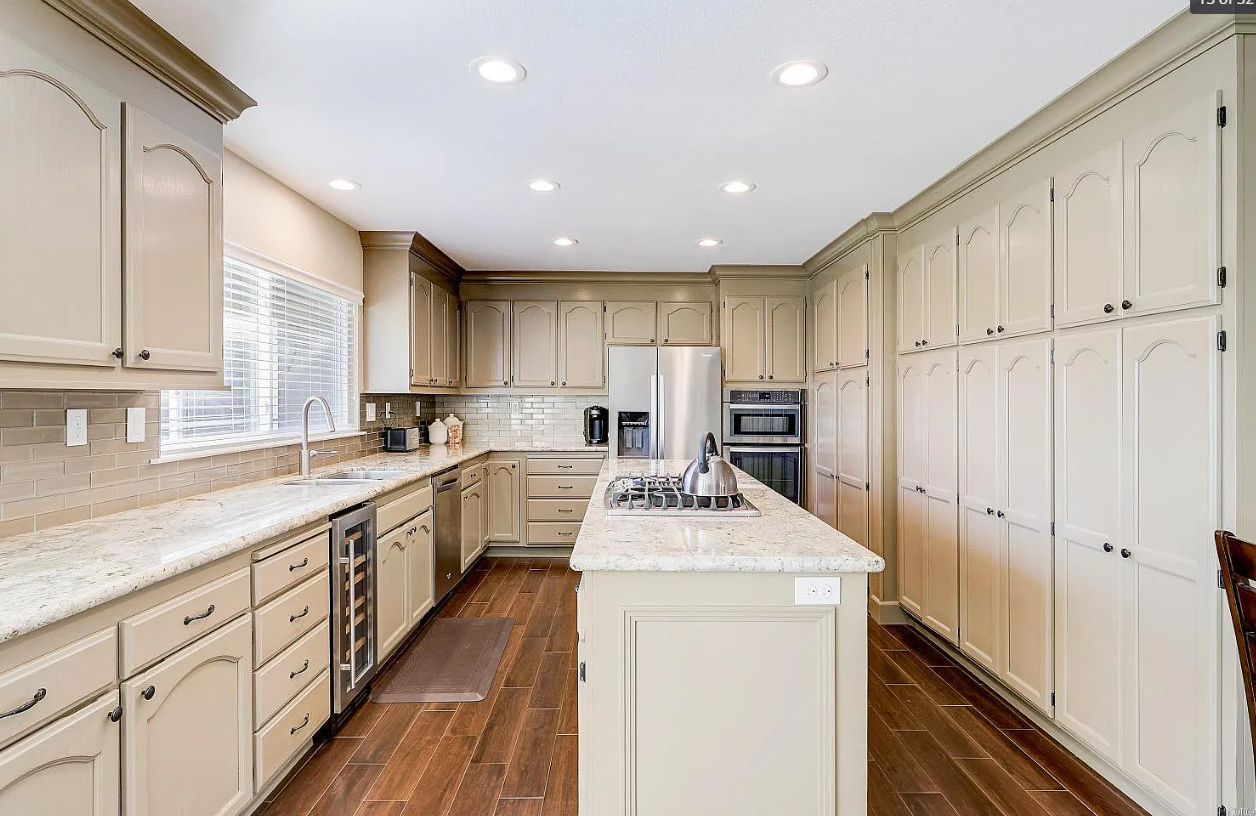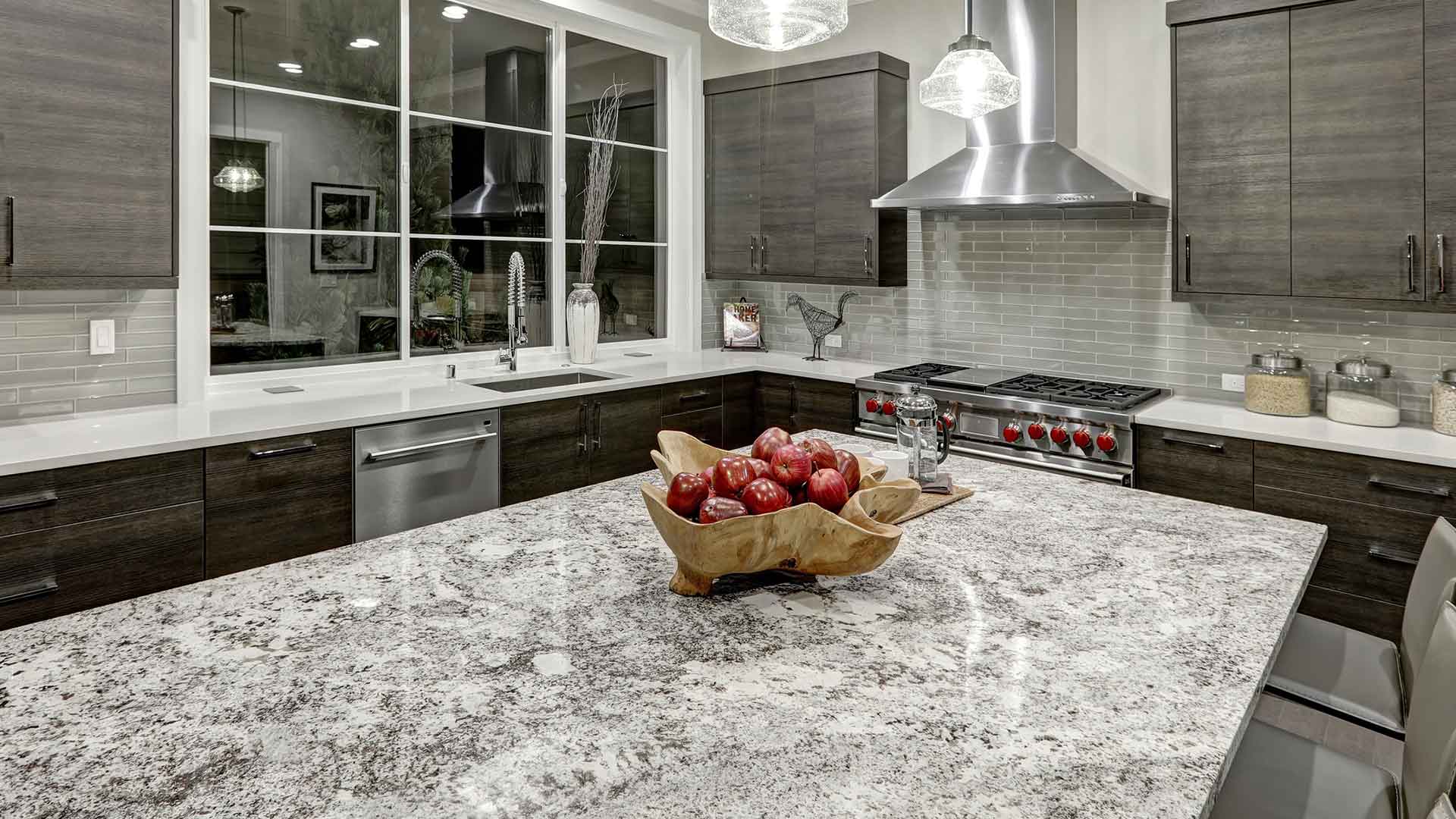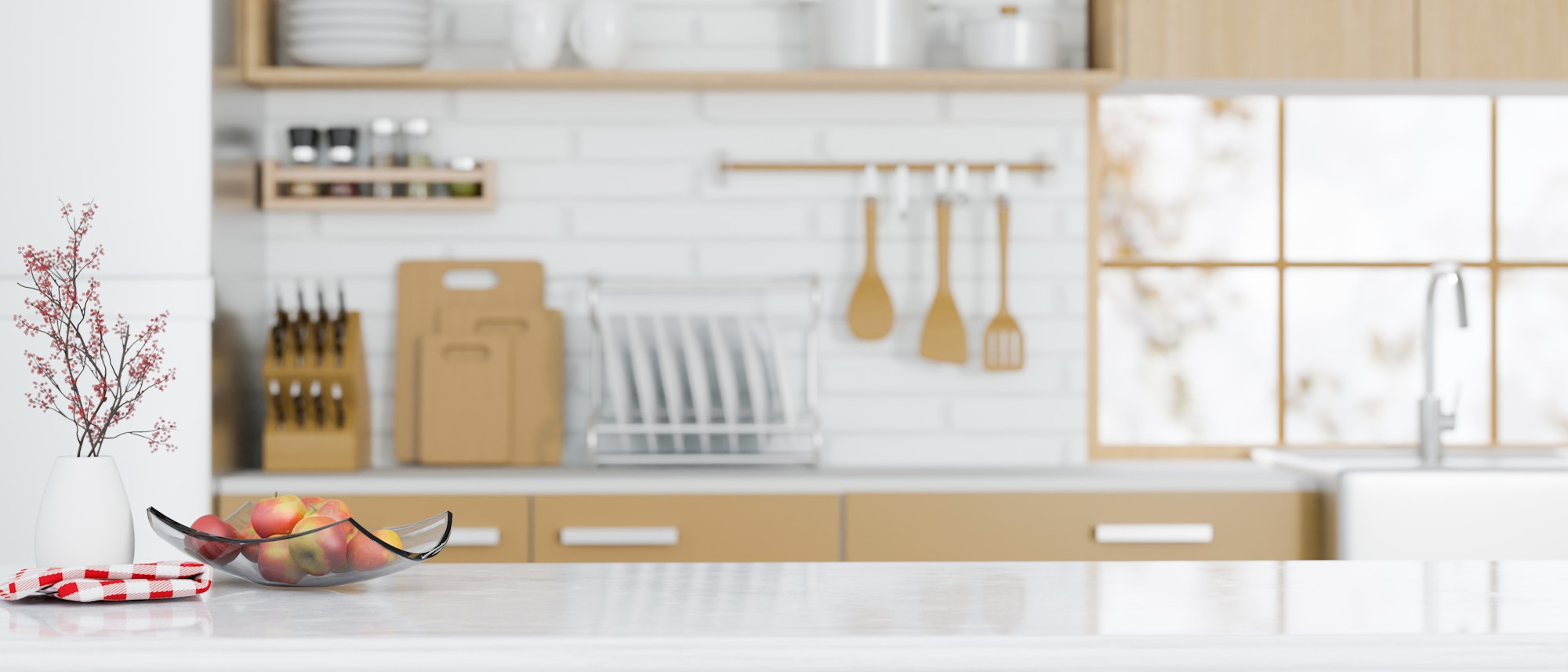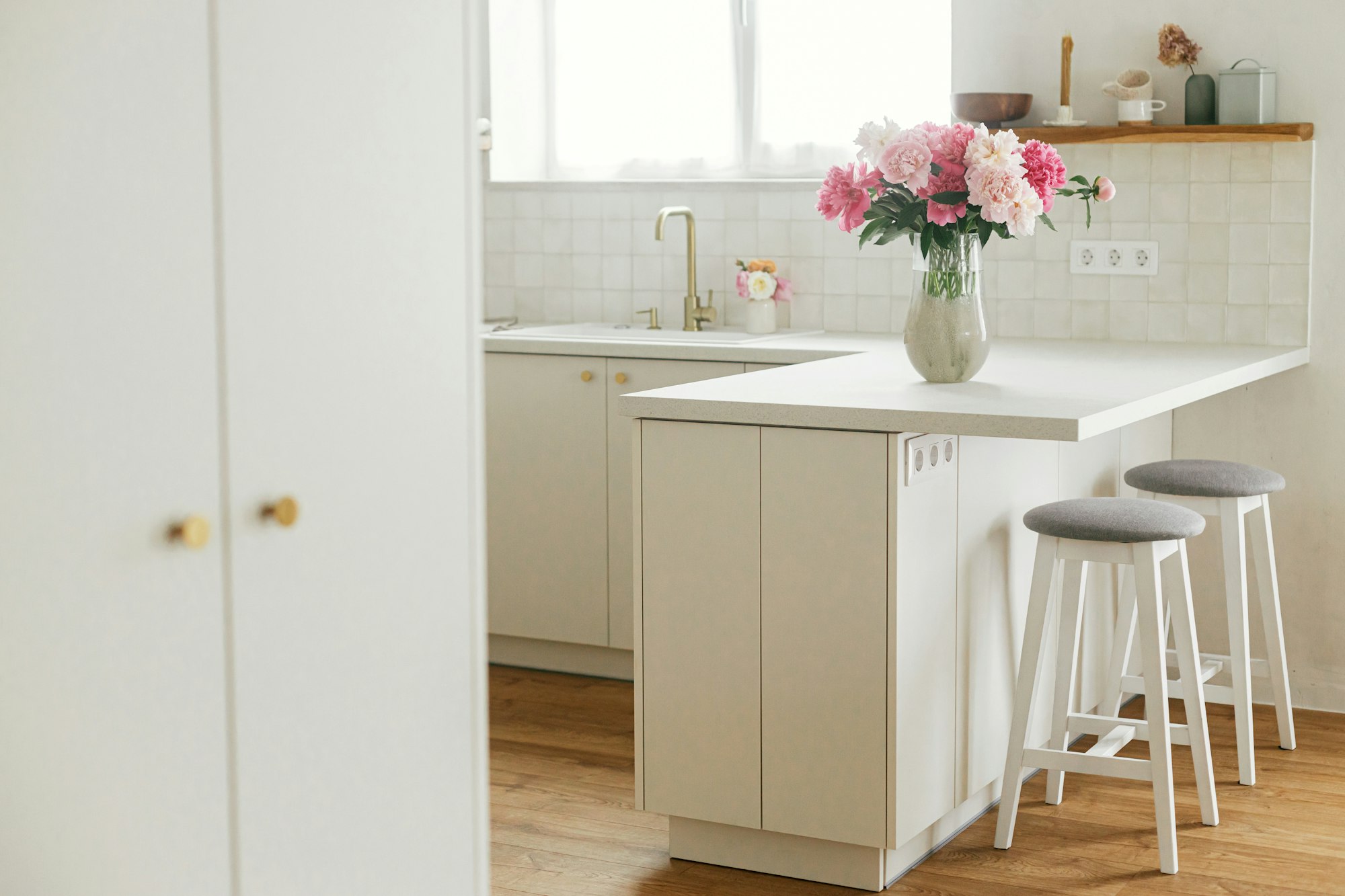
Selecting the right kitchen countertop can feel like a monumental task, especially with so many natural stone options available. Each material brings its own unique blend of durability, texture, and color, making the decision feel overwhelming.
However, by understanding the qualities of each stone, you can choose a countertop that balances form and function, enhancing both the beauty and practicality of your kitchen.
At DC Tile and Stone, we understand the importance of selecting the perfect countertop material. In this guide, we’ll walk you through some of the most popular options known for their resilience, charm, and timeless appeal. Whether you’re drawn to the elegance of marble, the strength of granite, or the sleekness of quartz, there’s a stone that’s perfect for your kitchen.
Granite countertops are renowned for their natural beauty and durability. With a wide range of colors and patterns, granite can complement any kitchen design, from modern to traditional. Granite is incredibly resilient, capable of withstanding high heat and resisting scratches, making it ideal for busy kitchens.
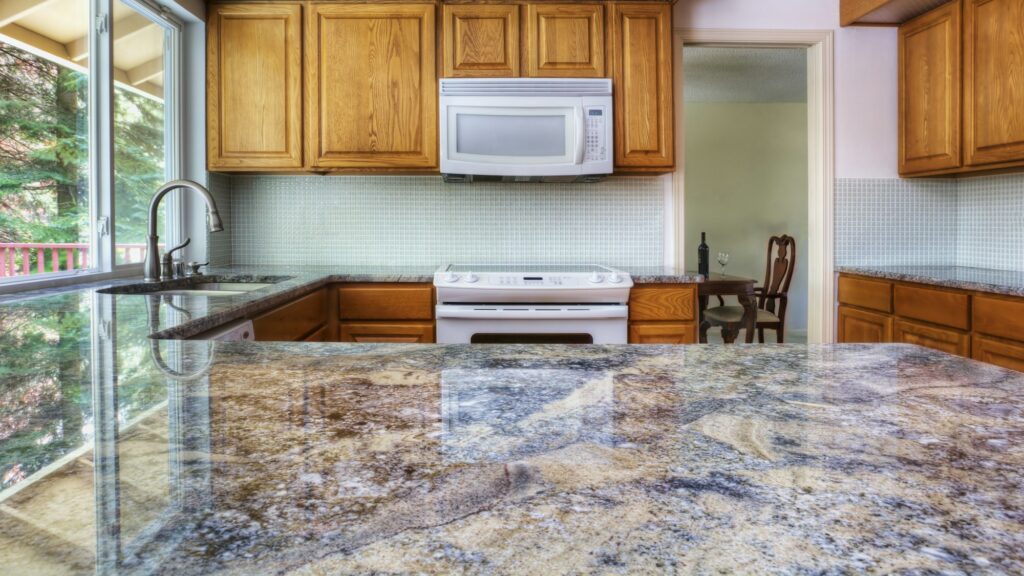
One of the key features of granite is its ability to resist scratches, heat, and stains, making it a great choice for those who cook frequently. However, granite requires some upkeep, such as annual sealing to maintain its resistance to moisture and staining.
For homeowners seeking a combination of luxury and durability, granite is a top contender. Whether you prefer light shades or darker tones, granite’s natural patterns offer a distinctive look that enhances any kitchen.
When it comes to practicality and aesthetics, quartz countertops are hard to beat. Quartz is an engineered stone, meaning it is made from natural quartz combined with resins, giving it a non-porous surface. This makes quartz highly resistant to stains and perfect for busy kitchens where spills are common.
One of the standout features of quartz is its low maintenance. Unlike natural stones like granite and marble, quartz does not require sealing, and cleaning it is as simple as using a mild soap and water solution. Quartz is also available in a wide variety of colors, allowing you to find the perfect match for your kitchen’s design.

Whether you prefer a clean, uniform look or something more bold and dramatic, quartz offers a balance of beauty and brawn. Its durability and sleek appearance make it an excellent choice for homeowners seeking both style and function in their kitchen countertops.
If you’re drawn to luxury and sophistication, marble countertops are the epitome of elegance. Known for its intricate veining and one-of-a-kind beauty, marble is often the go-to choice for homeowners looking to create a high-end kitchen space. Each slab of marble is unique, providing a personalized and timeless touch to your kitchen.
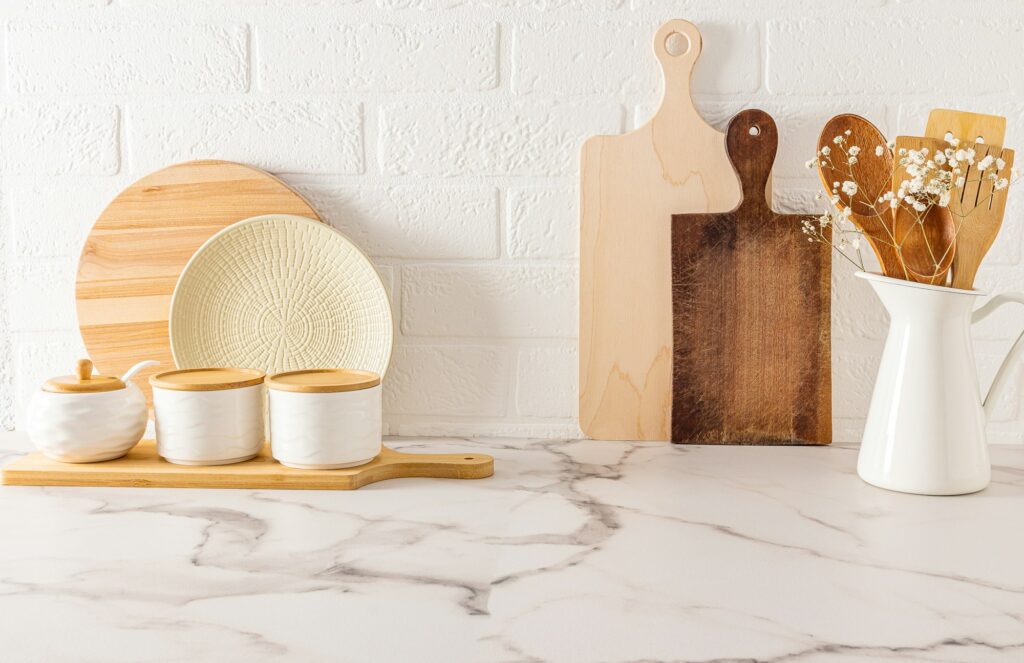
Beyond aesthetics, marble is surprisingly functional. It is naturally heat-resistant, making it ideal for cooking and baking. However, it does require more maintenance than other stones due to its porous nature. Honed marble, with its matte finish, is a popular choice as it hides scratches better, while polished marble offers a glossy, reflective surface for those who prefer a more opulent look.
While marble requires regular sealing and care to prevent scratches and stains, it can last a lifetime if properly maintained, making it a worthwhile investment for those who value luxury.
When it comes to choosing the best stone for your kitchen countertops, cost and maintenance are two pivotal considerations. You’re making a long-term investment, so balancing your dream look with the practicalities of your budget is crucial.
| Material | Pros | Cons |
|---|---|---|
| Granite | Stunning natural beauty, classic look | Higher price tag, requires periodic sealing, additional maintenance costs |
| Quartz | Charm of natural stone, lower maintenance, no sealing needed, resistant to stains, easy to clean | Engineered material, not as unique as natural stone |
| Marble | Unmatched elegance, synonymous with luxury | Demands more maintenance, porous, susceptible to scratching and staining, requires vigilant upkeep |
Ultimately, think about your cooking habits and lifestyle. If you’re a busy cook who values easy maintenance, quartz could be your best match. But if you’re smitten by the allure of natural stone and don’t mind a bit of upkeep for marble or granite, they can certainly bring a touch of timeless beauty to your kitchen.
Proper maintenance can extend the life of your stone countertops. Start by considering the specific needs of your chosen material. For example, granite is relatively low-maintenance but still benefits from regular resealing, while marble demands more attentive care due to its porous nature.
With the right care and protection, your stone countertops will not only last a lifetime but also retain their glossy allure and enhance your kitchen’s charm.
Granite and quartz are often considered the most durable materials. Granite offers natural robustness, while quartz combines resilience with low maintenance.
Natural stones like granite and marble typically need sealing every 1 to 3 years, depending on usage and the type of sealant used. Quartz doesn’t require sealing.
Yes, most stone countertops are heat-resistant. Granite and quartz handle heat well, but it’s advisable to use trivets or hot pads to protect the finish.
Yes, particularly porous stones like marble and some granites can stain if spills are not cleaned promptly. Quartz is generally stain-resistant due to its non-porous surface.
Use a mild dish soap and warm water with a soft cloth for daily cleaning. Avoid harsh chemicals or abrasive scrubbers to maintain the stone’s finish.
Choosing the right stone countertop is about balancing beauty, durability, and practicality. Whether you’re drawn to the classic appeal of granite, the low-maintenance charm of quartz, or the luxurious elegance of marble, your choice should reflect both your personal style and how you use your kitchen.
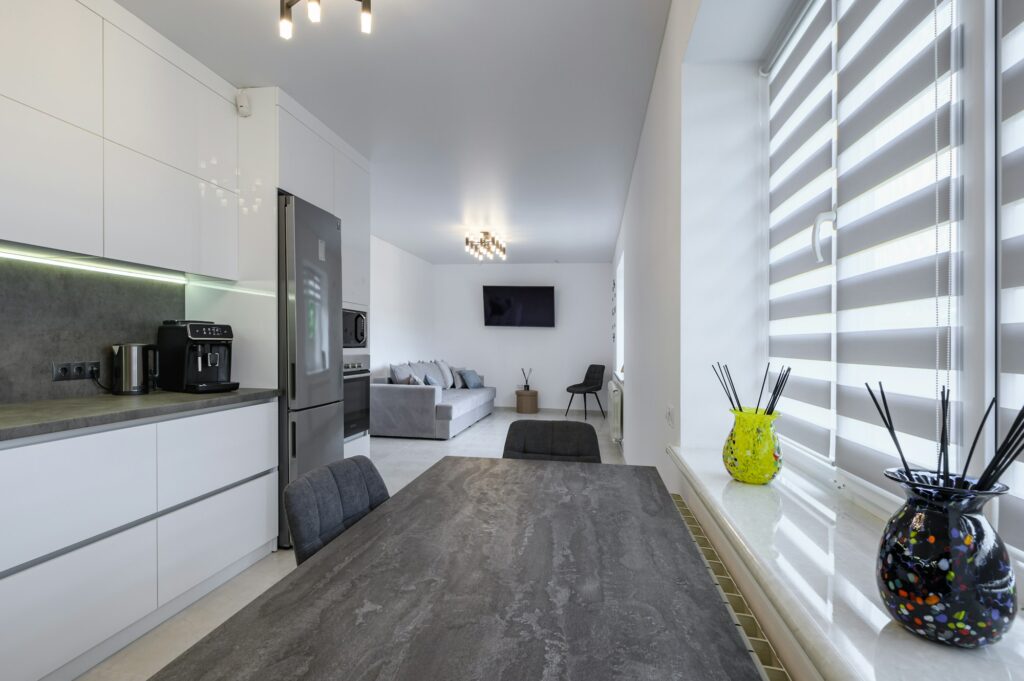
At DC Tile and Stone, we offer a wide selection of high-quality stone materials for kitchen countertops. Visit our showroom or explore our website to find the perfect countertop for your home. Our experienced team is ready to assist you in making the best choice for your kitchen.
Ready to transform your kitchen? Contact DC Tile and Stone today to browse our collection of premium stone materials. Whether you’re upgrading your countertops or remodeling your entire kitchen, we have the perfect solutions to bring your vision to life.
